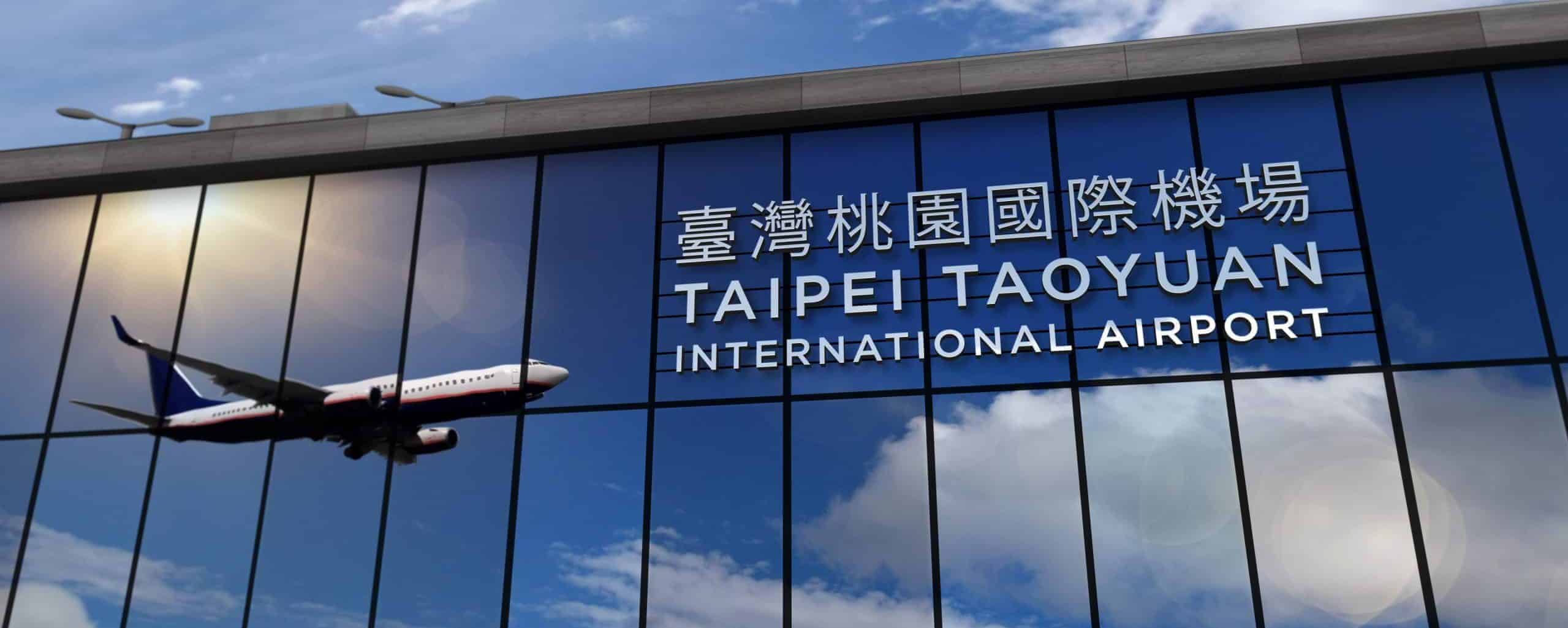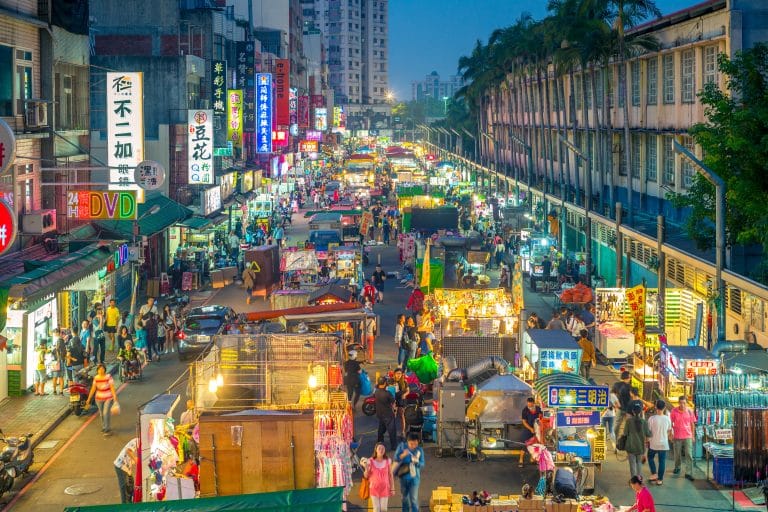Luzhu District: Unveiling the Industrial and Cultural Hub of Taoyuan
Luzhu District is situated in the northwest part of Taoyuan City in Taiwan, showcasing a blend of rapid urbanization and preserved local culture. As a suburban district, Luzhu serves as a residential and industrial hub that supports the sprawling metropolis of Taipei to its north and Taoyuan to its southwest. Its geographical location has made it an attractive area for those who seek suburban comfort with easy access to urban amenities.

Over the years, Luzhu has experienced significant growth, transitioning from a traditionally agricultural region to a district bustling with high-rise buildings and modern infrastructure. This evolution reflects the broader economic development and urban expansion of Taoyuan City, which has become one of Taiwan’s most important municipalities. Luzhu’s proximity to Taiwan Taoyuan International Airport and major transportation networks has further bolstered its economy, making it a strategic location for businesses and travelers alike.
Key Takeaways
- Luzhu District is an evolving suburban area with historical roots in agriculture.
- It serves as a strategic economic and residential district in Taoyuan City.
- Modern infrastructure and cultural sites contribute to Luzhu’s unique character.
History and Geography
Luzhu District holds a prominent place in the tapestry of Taoyuan’s history and possesses a diverse geographical landscape. This combination of cultural significance and natural features makes it a unique part of greater Taoyuan City.
Historical Significance
Luzhu District, once a rural township within Taoyuan County, has experienced significant changes over time. In 2014, it underwent administrative transformation, elevating its status first to a county-administered city and then to a district of Taoyuan City. Historical records mention Nankan, the downtown area, known for being a bustling, high-density suburb. Many of its residents are commuters who work in nearby cities, including Taipei.
Geographical Landscape
Geographically, Luzhu covers an area of 75.50 km² and, as of February 2023, is home to approximately 167,654 people. The land is carved by its urbanized zones, with residential high-rises dominating the skyline of areas like Nankan. This district’s development illustrates the evolution from pastoral landscapes to modern urban living, characteristic of many areas in Taiwan.
Administrative Divisions

Luzhu District is a well-structured entity in Taoyuan City, characterized by its systematic organization into various villages which are critical for local governance and public administration.
Village Organization
Luzhu District is divided into several villages, serving as the foundational administrative units. This division allows for effective local management and better delivery of services to the residents. The district boasts well-defined village boundaries, which include Dazhu, Fuchang, and Nankan among others.
Local Governance
Within these villages, local governance plays a pivotal role in maintaining order and providing essential services. Each village in the Luzhu District operates under the supervision of local officials who are responsible for overseeing public affairs, local development, and community well-being. The administration of the district adheres to policies that are aimed at optimizing the quality of life for its citizens.
Economy and Infrastructure
In Luzhu District, economic development is closely intertwined with sophisticated transportation systems and industrial growth fostering a dynamic local economy.
Transportation Networks
Luzhu District boasts a robust transportation infrastructure crucial for its economic vitality. The region is served by the Taiwan High Speed Rail, which efficiently connects it to other parts of Taiwan, greatly benefiting daily commuters and the local economy. Additionally, the district offers easy access to the Taoyuan International Airport, one of the busiest airports in Taiwan, promoting both domestic and international business exchanges and tourism.
Public transit within Luzhu is further bolstered by a well-structured network of buses and the availability of the MRT system. This network not only facilitates smooth travel within Luzhu but also connects residents to neighboring districts and cities.
Industrial Development
Industrial zones in Luzhu District have become a bedrock for its economic landscape, with a focus on high-tech and manufacturing industries. These zones attract a considerable workforce and have played a significant role in urban development.
Luzhu’s strategic location near core transportation hubs like the high-speed rail station and the Taoyuan airport enhances its appeal for industrial investment, enabling it to leverage Taiwan’s broader economic resources. This proximity to transportation means enables quick and efficient distribution of manufactured goods, further enriching the district’s economic profile.
Cultural Highlights
Luzhu District is renowned for its rich cultural tapestry, manifested in its local cuisine and traditional temples. These elements showcase the unique blend of history and culinary artistry that define the district’s cultural identity.
Local Cuisine
Luzhu District offers a diverse array of dishes that reflect the area’s cultural heritage. Food enthusiasts can savor the flavors of traditional Taiwanese snacks and meals, which are deeply embedded in the customs of the region. A noteworthy mention must go to the use of fresh, locally sourced ingredients that contribute to the authentic taste experiences. For those eager to explore a modern twist on local flavors, pursuing the innovative culinary creations that incorporate Hello Kitty themes provides a contemporary dining experience without losing the essence of Luzhu’s food culture.
Traditional Temples
The spiritual landscape of Luzhu District is dotted with traditional temples, which serve as both religious centers and hubs of community activity. Visitors can observe intricate architectural details and ornate decorations that reveal the skilled craftsmanship of local artisans. These temples not only carry religious significance but also play a pivotal role in preserving the cultural heritage of Luzhu. Engaging in temple festivities allows for a deeper understanding of the district’s customs and beliefs. Immersing oneself in such cultural landmarks emphasizes the importance of these sacred spaces within the fabric of local life.
Education and Research
In Luzhu District, Taoyuan, educational facilities and research institutions serve as cornerstones for local and regional development, fostering academic growth and intellectual enquiry among its citizens.
Academic Institutions
Luzhu District is home to a number of educational entities, with Nankan, the downtown area, serving suburban families and providing access to various schools and colleges. While specific schools in Luzhu District are not detailed in the search results, the proximity to Taipei and Taoyuan City suggests collaboration and enrollment in larger institutions possible for residents. On a related note, the nearby Lasallian Institute for Development and Educational Research serves the larger educational community with innovative research and development, although it is based in the Philippines.
Libraries and Studies
Libraries play a pivotal role in supporting the educational framework of Luzhu District. The Nankan Library is one of the local libraries offering resources and study areas to students and researchers. Meanwhile, the Taoyuan Public Library, likely part of a larger network, provides a wellspring of knowledge to residents, though specifics about its connections to Luzhu have not been provided. Libraries not only enhance academic learning but also serve as hubs for communal education and lifelong learning endeavors.
Tourism and Recreation
Luzhu District serves as a gateway for travelers, with the nearby Taoyuan International Airport facilitating access to a range of attractions and leisure activities.
Attractions and Landmarks
Luzhu District’s tourism is infused with a variety of landmarks that capture the essence of local heritage and culture. The region boasts historical sites such as the Wufugong, an old temple known for its spiritual significance and traditional architecture. Visitors often capture photos of the intricate designs and participate in the local customs. Moreover, the district’s proximity to the airport is complemented by access to quality accommodation options like the Novotel Taoyuan Airport Hotel, ensuring comfort and convenience for tourists.
Leisure Activities
For those seeking recreation, Luzhu offers a plethora of activities. Nature lovers can explore trails like Wujiutongshan, known for its scenic beauty and sightings of local wildlife such as swallowtail butterflies and stag beetles. The lure of these trails is often reflected in positive reviews from hikers and outdoor enthusiasts. For family-friendly options, the Nankan River Ecological Park presents informative and engaging experiences in a serene environment. Additionally, venues near Taoyuan Airport provide visitors with the chance to relax and unwind before or after their flights.
Local Living

Luzhu District, often seen as a residential suburb of Taoyuan City, combines the convenience of urban living with a touch of suburban relaxation. Families and professionals alike find Luzhu to be a comfortable place to live owing to its well-structured residential areas and community services.
Residential Life
Life in Luzhu District is characterized by its high-rise apartments and bustling streets that meet the needs of its diverse residents. The area functions as a suburban retreat for those who work in nearby cities like Taipei, offering a more serene lifestyle without forgoing urban amenities. Commuting is made easy with efficient public transport options, and the housing options range from affordable units in older buildings to luxurious new developments.
Community Services
The district provides a range of community services aimed at enhancing the lifestyle of its residents. From local parks for recreational activities to educational facilities for families with children, these services contribute to the district’s communal spirit. Health care facilities have grown in response to the district’s increasing population. Additionally, various hotels cater to visitors and contribute to the local economy, showcasing Luzhu’s ability to meet both residential and commercial needs.
Frequently Asked Questions

The following are common questions about Luzhu District, which travelers often ask to better plan their visit.
What are the main tourist attractions in Luzhu District?
Tourists in Luzhu District can explore a variety of landmarks and attractions, including historical sites and cultural landmarks. Local museums also offer insights into the area’s heritage and art.
How can you travel to Luzhu District from Taipei?
Travelers can reach Luzhu District from Taipei by various modes of transportation, including buses, trains, and cars. For those looking for luggage storage options upon arrival or departure, there are services available near the airport and major transport hubs.
What are some popular local foods to try in Luzhu District?
Luzhu District offers a range of culinary delights, from traditional Taiwanese snacks to gourmet dining experiences. Visitors should not miss trying the district’s famous street food and local specialties.
What accommodation options are available in Luzhu District?
From luxury hotels to budget-friendly stays, Luzhu District has accommodations to fit various preferences and price points. For those requiring luggage storage, some hotels provide these services for guests’ convenience.
How does the economy of Luzhu District compare to other districts in Taoyuan City?
Economically, Luzhu District is marked by a diverse industrial landscape and is home to numerous business parks and commercial sectors. Its development is on par with other districts, contributing significantly to the economy of Taoyuan City.
What educational facilities can be found in Luzhu District?
Luzhu District is equipped with a wide range of educational institutions, including public and private schools, as well as higher education facilities that support the district’s growing population.

